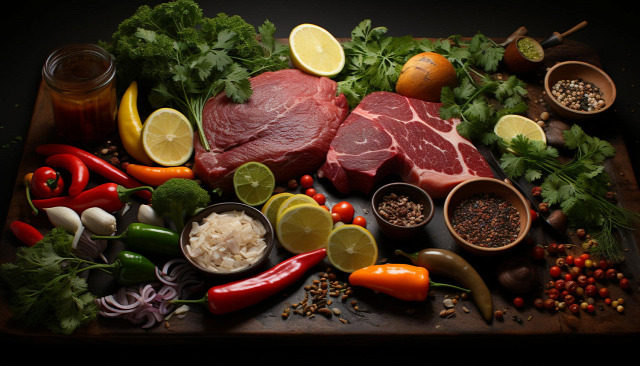
The Cultured Meat Industry is at the forefront of a transformative shift in the food industry, heralding a new era of sustainable and ethical protein production.
As per BIS Research, the cultured meat market, projected to reach a valuation of $1,154.8 million in 2024, is poised for considerable growth, with an estimated value of $3,810.6 million by 2033. This expansion is bolstered by a robust Compound Annual Growth Rate (CAGR) of 14.19% from 2024 to 2033.
Global Key Market Dynamics
-
Sustainability Driving Market Growth: The global Cultured Meat Market experiences significant growth propelled by a surge in sustainability consciousness. As consumers seek environmentally friendly alternatives, cultured meat emerges as a viable solution, addressing concerns related to traditional meat production's ecological impact.
-
Technological Innovations: Technological advancements play a pivotal role in shaping the global market. Innovations in cell cultivation techniques, bioreactor technology, and tissue engineering contribute to the scalability and efficiency of cultured meat production, fostering industry growth.
-
Shifting Consumer Preferences: Changing consumer preferences towards plant-based diets and ethical consumption drive the demand for cultured meat. The market caters to individuals seeking animal-free alternatives without compromising on taste, nutritional value, or culinary experience.
Access our Free Sample Report on Cultured Meat Market Research!
Regional Perspectives
-
North America: North America leads the way in embracing cultured meat, with a burgeoning market driven by a robust demand for sustainable and cruelty-free protein sources. The region witnesses significant investments in research and development, with startups and established players vying for a share of the growing market.
-
Europe: Europe emerges as a key player in the cultured meat landscape, fueled by a proactive regulatory environment and a strong emphasis on sustainability. The European market witnesses collaborations between scientists, policymakers, and industry players, fostering innovation and market penetration.
-
Asia-Pacific: In the Asia-Pacific region, particularly in countries like Singapore and Japan, cultured meat gains traction. Regulatory support, coupled with a rising awareness of food sustainability, propels the adoption of cultured meat products, opening new avenues for market expansion.
Challenges and Opportunities
-
Regulatory Frameworks: Establishing clear and consistent regulatory frameworks remains a challenge in the cultured meat industry. Harmonizing regulations across regions is essential for fostering consumer trust and facilitating market growth.
-
Production Scalability: The challenge of achieving cost-effective production scalability is an opportunity for innovation. Advancements in bioprocessing and bioreactor technologies are critical for addressing scalability concerns and making cultured meat more accessible to a broader market.
-
Consumer Education and Acceptance: Opportunities lie in consumer education and acceptance. Initiatives to inform consumers about the benefits of cultured meat, its positive environmental impact, and its potential to revolutionize the FoodTech industry contribute to widespread acceptance.
Key Prominent Players in the Market
-
Mosa Meat
-
UPSIDE Foods
-
Aleph Farms
-
Mission Barns
-
Air Protein
-
BlueNalu
-
Meatable
-
SuperMeat
-
GOOD Meat
-
Finless Foods
-
CUBIQ FOODS
-
Believer Meats
Future Outlook and Opportunities
-
Diversification of Cultured Meat Products: The future of the Cultured Meat Market envisions a diversification of product offerings. As technology advances, a broader range of cultured meat products, including steaks, burgers, and processed meats, is expected to enter the market, catering to diverse consumer preferences.
-
Collaboration for Market Expansion: Collaborations between industry players, research institutions, and governments will be pivotal for market expansion. Joint efforts in research, development, and marketing initiatives contribute to establishing cultured meat as a mainstream food choice.
-
Global Market Penetration: Cultured meat's global market penetration is set to increase, driven by a convergence of factors such as environmental concerns, ethical considerations, and the quest for sustainable protein sources. As awareness grows, the market is poised to witness widespread adoption across continents.
Conclusion
The Cultured Meat Industry stands at the forefront of a culinary revolution, challenging traditional notions of meat production. As technological innovations, consumer preferences, and sustainability goals align, the global and regional prospects for cultured meat signal a future where ethical and sustainable protein choices redefine the way we eat.

